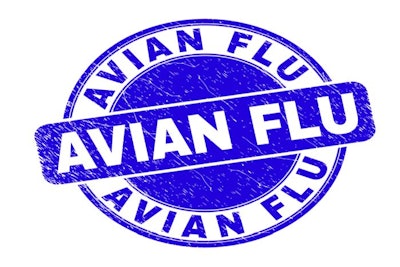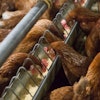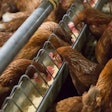
Veterinary officials confirmed that highly pathogenic avian influenza (HPAI) has been confirmed in wild birds in Virginia, as well as in additional wild birds in North Carolina.
These new cases follow two earlier cases of HPAI reported this year in South Carolina and one earlier case in North Carolina.
HPAI in North Carolina
The initial North Carolina case was reported on January 14 in Hyde County. A press release from the North Carolina Department of Agriculture and Consumer Services, issued on January 27, stated that the virus has now been confirmed in 53 hunter-harvested wild waterfowl at three sites in the state – two in Hyde County and one in Bladen County.
The state’s agriculture department also reported that these are the first wild birds in the United States to have Eurasian H5 HPAI since 2016. The positive samples were collected by USDA as part of its ongoing surveillance program for early detection of HPAI in collaboration with state wildlife agencies.
“These findings continue to support evidence that high path avian influenza is currently present in the Atlantic Americas migratory flyway,” said State Veterinarian Mike Martin. “Wild birds can carry this virus asymptomatically and potentially spread it to domestic poultry. We strongly encourage all poultry owners to follow strict biosecurity measures for at least the next 30 days, which is the time frame these birds are anticipated to be migrating through the state.”
HPAI in Virginia
HPAI has been detected in wild birds in Henrico County, Virginia.
Michael Wallace, spokesman for the Virginia Department of Agriculture and Consumer Services, said a highly pathogenic H5 Eurasian strain was confirmed in two hunter harvested birds.
Wallace added that there were earlier reports that there were five confirmed cases in both Henrico and Surry Counties, but in actuality, there were no confirmed cases in Surry County and that only two birds tested positive.
Dr. Charlie Broaddus, Virginia’s state veterinarian, informed the Delmarva Chicken Association (DCA) that the birds were hunted on January 8 and were tested for avian influenza as part of routine disease surveillance.
"This detection is not unexpected, and we continue to recommend the practice of the highest practical level of biosecurity," Broaddus wrote in a memo to DCA.
View our continuing coverage of the global avian influenza situation.


















